 W
WA political movement is a collective attempt by a group of people to change government policy or social values. Political movements are usually in opposition to an element of the status quo and are often associated with a certain ideology. Some theories of political movements are the political opportunity theory which states that political movements stem from mere circumstances and the resource mobilization theory which states that political movements result from strategic organization and relevant resources. Political movements are also related to political parties in the sense that they both aim to make an impact on the government and that several political parties have emerged from initial political movements. While political parties are engaged with a multitude of issues, political movements tend to focus on only one major issue.
 W
WA grassroots movement is one that uses the people in a given district, region, or community as the basis for a political or economic movement. Grassroots movements and organizations use collective action from the local level to effect change at the local, regional, national, or international level. Grassroots movements are associated with bottom-up, rather than top-down decision making, and are sometimes considered more natural or spontaneous than more traditional power structures.
 W
WAbolitionism, or the abolitionist movement, was the movement to end slavery. In Western Europe and the Americas, abolitionism was a historic movement that sought to end the Atlantic slave trade and liberate the enslaved people.
 W
WAnimal rights is the philosophy in which some, or all, animals are entitled to the possession of their own existence and that their most basic interests—such as the need to avoid suffering—should be afforded the same consideration as similar interests of human beings. That is, some species of animals have the right to be treated as individuals, with their own desires and needs, rather than as an unfeeling property.
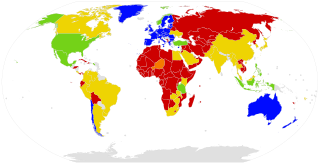 W
WRights affecting non-human animals vary greatly by country or jurisdiction — encompassing everything from the legal recognition of non-human animal sentience to the absolute lack of any anti-cruelty laws with no regard for animal welfare.
 W
WAnti-capitalism is a political ideology and movement encompassing a variety of attitudes and ideas that oppose capitalism. In this sense, anti-capitalists are those who wish to replace capitalism with another type of economic system, usually some form of socialism.
 W
WAnti-fascism is a political movement in opposition to fascist ideologies, groups and individuals. Beginning in European countries in the 1920s, it was at its most significant shortly before and during World War II, where the Axis powers were opposed by many countries forming the Allies of World War II and dozens of resistance movements worldwide. Anti-fascism has been an element of movements across the political spectrum and holding many different political positions such as anarchism, communism, pacifism, republicanism, social democracy, socialism and syndicalism as well as centrist, conservative, liberal and nationalist viewpoints.
 W
WAn anti-war movement is a social movement, usually in opposition to a particular nation's decision to start or carry on an armed conflict, unconditional of a maybe-existing just cause. The term anti-war can also refer to pacifism, which is the opposition to all use of military force during conflicts, or to anti-war books, paintings, and other works of art. Many activists distinguish between anti-war movements and peace movements. Anti-war activists work through protest and other grassroots means to attempt to pressure a government to put an end to a particular war or conflict or to prevent it in advance.
 W
WThe Black Panther Party (BPP), originally the Black Panther Party for Self-Defense, was a Black Power political organization founded by college students Bobby Seale and Huey P. Newton in October 1966 in Oakland, California. The party was active in the United States between 1966-1982, with chapters in numerous major cities, and international chapters in Britain and Algeria. Upon its inception the Black Panther Party's core practice was its open carry armed citizens' patrols ("copwatching") to monitor the behavior of officers of the Oakland Police Department and challenge police brutality in the city.
 W
WChernoe Znamia, known as the Chernoznamentsy, was a Russian anarchist communist organisation. It emerged in 1903 as a federation of cadres. It took its name, "The Black Banner", from the black flag, the use of which as a symbol of anarchism in Russia, according to An Anarchist FAQ, coincided with its founding.
 W
WThe Chinese democracy movement refers to a series of loosely organized political movements in the People's Republic of China against the continued one-party rule by the Communist Party of China. One such movement began during the Beijing Spring in November 1978 and was taken up again in the Tiananmen Square protests of 1989.
 W
WThe Clandestine Insurgent Rebel Clown Army is an anti-authoritarian left-wing activist group that uses clowning and non-violent tactics to act against corporate globalisation, war, and on other issues. The group originated circa 2003 in the United Kingdom.
 W
WThe Cooperation and Development Network Eastern Europe is a capacity-building network of political green youth organisations from Central, Eastern and South Eastern Europe. CDN’s political focus is on Eastern Europe where the organisation works with local partners. CDN also collaborates with organisations and activists from the rest of Europe who want to support a Green Eastern Europe.
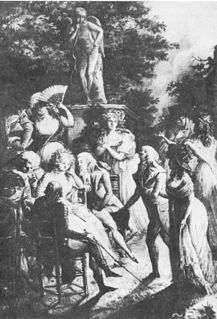 W
WThe Coppet group, also known as the Coppet circle, was an informal intellectual and literary gathering centred on Germaine de Staël during the time period between the establishment of the Napoleonic First Empire (1804) and the Bourbon Restoration of 1814-1815. The name comes from Coppet Castle in Switzerland.
 W
WTranshumanist politics constitutes a group of political ideologies that generally express the belief in improving human individuals through science and technology.
 W
WEuropean Movement Germany is a non-partisan network of interest groups in the field of EU politics in Germany. It cooperates closely with all EU stakeholders on a national and European level, most particularly with the German Federal Government and the European Commission. The 247 member organisations represent various social groups including business and professional associations, trade unions, educational and academic institutions, foundations and political parties, amongst others. The aim is to continually improve, in close cooperation with political institutions, communication on European politics, European perspectives and the coordination of European policy. The EM Germany network is a member of European Movement International.
 W
WFriendly Fascism: The New Face of Power in America is a book written by Bertram Gross, American social scientist and professor of political science at Hunter College, and published on June 1, 1980 by M. Evans & Company as a 419-page hardback book containing 440 quotations and sources. The book examines the history of fascism and, based on the growth of big business and big government, describes possible political scenarios for a future United States. According to a 1981 review in the journal Crime and Social Justice, the book is described as "timely" on a subject requiring serious consideration and is about the dangers of fascism, focusing primarily on the United States, but being aware that monopoly capitalism needs to be understood internationally since capitalism "is not a national mode of production".
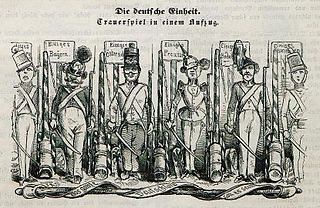 W
W"The German Question" was a debate in the 19th century, especially during the Revolutions of 1848, over the best way to achieve a unification of all or most lands inhabited by Germans. From 1815 to 1866, about 37 independent German-speaking states existed within the German Confederation. The Großdeutsche Lösung favored unifying all German-speaking peoples under one state, and was promoted by the Austrian Empire and its supporters. The Kleindeutsche Lösung sought only to unify the northern German states and did not include any part of Austria ; this proposal was favored by the Kingdom of Prussia.
 W
WGreater Albania is an irredentist and nationalist concept that seeks to unify the lands that many Albanians consider to form their national homeland. It is based on claims on the present-day or historical presence of Albanian populations in those areas. In addition to the existing Albania, the term incorporates claims to regions in the neighbouring states, the areas include Kosovo, the Preševo Valley of Serbia, territories in southern Montenegro, northwestern Greece, and a western part of North Macedonia.
 W
WIreland for Europe was a civil society organisation set up after the defeat of the first Irish referendum to campaign in favour of the Treaty of Nice. Initially chaired by Adrian Langan, it was chaired by Ciarán Toland from October 2001. The campaign team was also led by Michelle O'Donnell (Secretary) and Kevin Byrne. Ireland for Europe joined the Irish Alliance for Europe in August 2002, forming the backbone of its volunteer canvassing campaign. The group has been inactive since the end of 2002.
 W
WThe Irish Alliance for Europe was founded in summer 2002 by Professor Brigid Laffan of University College Dublin in order to lead the civil society campaign in favour of the Treaty of Nice at the second Irish referendum. Adrian Langan was recruited as full-time Campaign Director from a similar, voluntary, position in Ireland for Europe. It led all sectors of Irish society, campaigning effectively through the mass media, local canvassing, and postering nationwide.
 W
WItalian Fascism, also known as Classical Fascism or simply Fascism, is the original fascist ideology as developed in Italy by Giovanni Gentile and Benito Mussolini. The ideology is associated with a series of two political parties led by Benito Mussolini; the National Fascist Party (PNF), which ruled the Kingdom of Italy from 1922 until 1943, and the Republican Fascist Party that ruled the Italian Social Republic from 1943 to 1945. Italian Fascism is also associated with the post-war Italian Social Movement and subsequent Italian neo-fascist movements.
 W
WThe Jewish left consists of Jews who identify with, or support, left-wing or liberal causes, consciously as Jews, either as individuals or through organizations. There is no one organization or movement which constitutes the Jewish left, however. Jews have been major forces in the history of the labor movement, the settlement house movement, the women's rights movement, anti-racist and anti-colonialist work, and anti-fascist and anti-capitalist organizations of many forms in Europe, the United States, Algeria, Iraq, Ethiopia, and modern-day Israel. Jews have a rich history of involvement in anarchism, socialism, Marxism, and Western liberalism. Although the expression "on the left" covers a range of politics, many well-known figures "on the left" have been of Jews who were born into Jewish families and have various degrees of connection to Jewish communities, Jewish culture, Jewish tradition, or the Jewish religion in its many variants.
 W
WThe Jewish Territorial Organisation, known as the ITO, was a Jewish political movement which first arose in 1903 in response to the British Uganda Offer, but which was institutionalized in 1905. Its main goal was to find an alternative territory to that of the Land of Israel, which was preferred by the Zionist movement, for the creation of a Jewish homeland. The organization embraced what became known as Jewish Territorialism also known as Jewish Statism. The ITO was dissolved in 1925.
 W
WMaurrassisme is a political doctrine originated by Charles Maurras (1868–1952), most closely associated with the Action française movement. Maurassisme advocates absolute integral nationalism, monarchism, corporatism, alliance with revolutionary syndicalism, and opposition to democracy, liberalism, and capitalism.
 W
WThe Mensheviks, also known as the Minority were one of the three dominant factions in the Russian socialist movement, the others being the Bolsheviks and Socialist Revolutionaries.
 W
WThe Mombasa Republic is a proposed state that encompasses the Coast Province of Kenya. The Mombasa Republican Council in the main organisation to raise claims that Mombasa should secede from Kenya to become an independent state. They argued that secession would liberate the people of the coast province from marginalization by the successive governments in Kenya. The slogan they are using is Pwani Si Kenya.
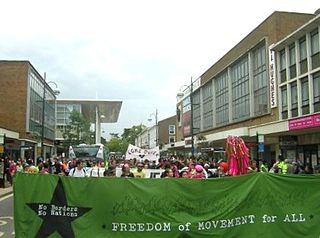 W
WThe No Border Network refers to loose associations of autonomous organisations, groups, and individuals in Western Europe, Central Europe, Eastern Europe and beyond. They support freedom of movement and resist human migration control by coordinating international border camps, demonstrations, direct actions, and anti-deportation campaigns.
 W
WThe Objectivist movement is a movement of individuals who seek to study and advance Objectivism, the philosophy expounded by novelist-philosopher Ayn Rand. The movement began informally in the 1950s and consisted of students who were brought together by their mutual interest in Rand's novel, The Fountainhead. The group, ironically named "the Collective" due to their actual advocacy of individualism, in part consisted of Leonard Peikoff, Nathaniel Branden, Barbara Branden, Alan Greenspan, and Murray Rothbard. Nathaniel Branden, a young Canadian student who had been greatly inspired by Rand's work, became a close confidant and encouraged Rand to expand her philosophy into a formal movement. From this informal beginning in Rand's living room, the movement expanded into a collection of think tanks, academic organizations, and periodicals.
 W
WThe Occupy Handbook is a collection of essays about Occupy Wall Street as well as the larger international Occupy movement. Contributors include economists and political commentators such as: Paul Krugman, Robin Wells, Michael Lewis, Robert Reich, Amy Goodman, David Graeber, Peter Diamond, Emmanuel Saez, Ariel Dorfman, Barbara Ehrenreich, Jeff Sachs, and Nouriel Roubini, among others. The essays analyze the movement's origins and questions about the role of the movement in contemporary society. The book attempts to capture the Occupy Wall Street phenomenon, giving readers an on-the-scene feel for the movement, as well as considering the lasting changes wrought and recommending reform. The editor of The Occupy Handbook, Janet Byrne, has previously written of the Occupy movement for the Huffington Post.
 W
WOgoni nationalism is a political ideology that seeks self determination by the Ogoni people. The Ogonis are one of the many indigenous peoples in the region of southeast Nigeria. They number about 1.5 million people and live in a 404-square-mile (1,050 km2) homeland which they also refer to as Ogoni, or Ogoniland. They share common oil-related environmental problems with the Ijaw people of Niger Delta.
 W
WPan-Africanism is a worldwide movement that aims to encourage and strengthen bonds of solidarity between all indigenous and diaspora ethnic groups of African descent. Based on a common goal dating back to the Atlantic slave trade, the movement extends beyond continental Africans with a substantial support base among the African diaspora in the Americas and Europe.
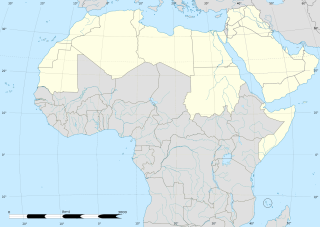 W
WPan-Arabism is an ideology that espouses the unification of the countries of North Africa and Western Asia from the Atlantic Ocean to the Arabian Sea, which is referred to as the Arab world. It is closely connected to Arab nationalism, which asserts the view that the Arabs constitute a single nation. Its popularity reached its height during the 1950s and 1960s. Advocates of pan-Arabism have often espoused socialist principles and strongly opposed Western political involvement in the Arab world. It also sought to empower Arab states against outside forces by forming alliances and, to a lesser extent, economic co-operation.
 W
WPan-Germanism, also occasionally known as Pan-Germanicism, is a pan-nationalist political idea. Pan-Germanists originally sought to unify all the German-speaking people – and possibly also Germanic-speaking peoples – in a single nation-state known as Großdeutschland.
 W
WPlanetary consciousness is the idea that human beings are members of a planetary society of Earth as much as they are members of their nations, provinces, districts, islands, cities or villages.
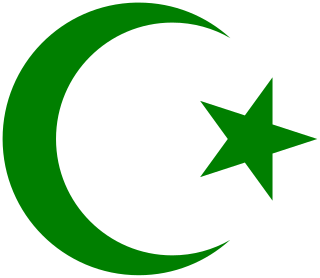 W
WPost-Islamism is a neologism in political science, the definition and applicability of which has led to an intellectual debate. Asef Bayat and Olivier Roy are among the main architects of the idea.
 W
WPost–World War II anti-fascism, including antifa groups, anti-fascist movements and anti-fascist action networks, saw the development of political movements describing themselves as anti-fascist and in opposition to fascism. Those movements have been active in several countries in the aftermath of World War II during the second half of the 20th and early 21st century.
 W
WThe Reformasi was a protest movement that began in September 1998 throughout Malaysia initiated by Anwar Ibrahim after his sacking as Deputy Prime Minister by the country's then-Prime Minister, Mahathir Mohamad in the same month. The massive movement, which occurred while the country hosted the Commonwealth Games, consisted of civil disobedience, demonstrations, sit-ins, rioting, occupations and online activism, involving thousands across Malaysia protesting against the Barisan Nasional (BN) government under the Mahathir Cabinet.
 W
WThis is a list of revolutions, rebellions, insurrections, and uprisings.
 W
WThe term Greater Romania usually refers to the borders of the Kingdom of Romania in the interwar period. It also refers to a pan-nationalist idea.
 W
WThe Slave's Cause: A History of Abolition is a historical book by Manisha Sinha that was released in February 2016 by Yale University Press.
 W
WThe socialist mode of production, also referred to as the communist mode of production, the lower-stage of communism or simply socialism as Karl Marx and Friedrich Engels used the terms communism and socialism interchangeably, is a specific historical phase of economic development and its corresponding set of social relations that emerge from capitalism in the schema of historical materialism within Marxist theory. The Marxist definition of socialism is that of an economic transition. In this transition, the sole criterion for production is use-value, therefore the law of value no longer directs economic activity. Marxist production for use is coordinated through conscious economic planning. Distribution of products is based on the principle of "to each according to his contribution". The social relations of socialism are characterized by the proletariat effectively controlling the means of production, either through cooperative enterprises or by public ownership or private artisanal tools and self-management. Surplus value goes to the working class and hence society as a whole.
 W
WThe student strike of 1970 was a massive protest across the United States, that included walk-outs from college and high school classrooms initially in response to the United States expansion of the Vietnam War into Cambodia. The strike began May 1, but increased significantly after the shooting of students at Kent State University by National Guardsmen on May 4. While many violent incidents occurred during the protests, they were, for the most part, peaceful.
 W
WSunrise Movement is an American youth-led political movement coordinated by Sunrise, a 501(c)(4) political action organization that advocates political action on climate change. When launched in 2017, the movement's goal was to elect proponents of renewable energy in the 2018 midterm elections, first in the Democratic primaries and then in the general election held on November 6, 2018. Since the midterm elections, the movement has been working towards shifting the Overton window on climate policy to center the environmental program known as the Green New Deal. Together with Justice Democrats and Alexandria Ocasio-Cortez, the group organized a sit-in in the office of Speaker of the House Nancy Pelosi, which brought Sunrise its first significant press coverage. Sunrise organized a similar event in February 2019, bringing a group of young people to confront Senator Dianne Feinstein in her office.
 W
WThe region of Syria, known in modern literature as Greater Syria, "Syria-Palestine", or the Levant, is an area in Western Asia east of the Mediterranean Sea. The region has been controlled by numerous different peoples, including ancient Egyptians, Canaanites, Israelites, Assyrians, Babylonians, the Achaemenid Empire, the ancient Macedonians, the Armenians, the Roman Empire, the Byzantine Empire, the Rashidun Caliphate, the Umayyad Caliphate, the Abbasid Caliphate, the Fatimid Caliphate, the Crusaders, the Ayyubid dynasty, the Mamluk Sultanate, the Ottoman Empire, the United Kingdom and the French Third Republic.
 W
WTseghakronism is a national/ethnic and political movement towards a renewal of the spiritual, behavioral and cultural identity of the Armenian people. The aim of Tseghakronism is to unite the Armenian people on the territory of their historical homeland within a single Armenian state. "Tseghakron" literally means "carrier of race" referring to those who represent and carry what is the spiritual and biological essence of the "classical" Armenian. However, it is often erroneously interpreted to mean "race-religion".
 W
WWalking Together is a Russian youth movement that was created by Vasily Yakemenko in May 2000. The group, which had over 50 thousand members as of January 2002, is strongly pro-Putin and is openly endorsed by President Vladimir Putin's administration. It has strict rules and indoctrination methods, and is openly criticized for its similarity to the Soviet Young Pioneers established by the Communist Party in 1922. The senior patron of the movement is Vladislav Surkov, the deputy head of the presidential administration. The group was transformed into "Nashi" (Ours) youth group in 2005 after a scandal involving the dissemination of pornography.
 W
WZionism is both an ideology and nationalist movement among the Jewish people that espouses the re-establishment of and support for a Jewish state centered in the area roughly corresponding to Canaan, the Holy Land, or the region of Palestine, but whose borders as the Land of Israel would encompass a much larger area. Modern Zionism emerged in the late 19th century in Central and Eastern Europe as a national revival movement, both in reaction to newer waves of antisemitism and as a response to Haskalah, or Jewish Enlightenment. Soon after this, most leaders of the movement associated the main goal with creating the desired state in Palestine, then an area controlled by the Ottoman Empire.